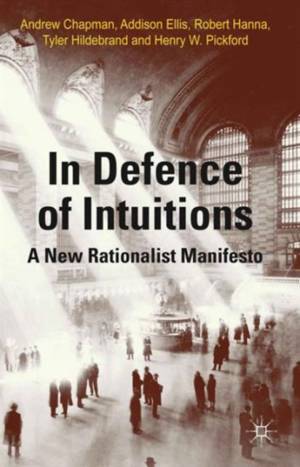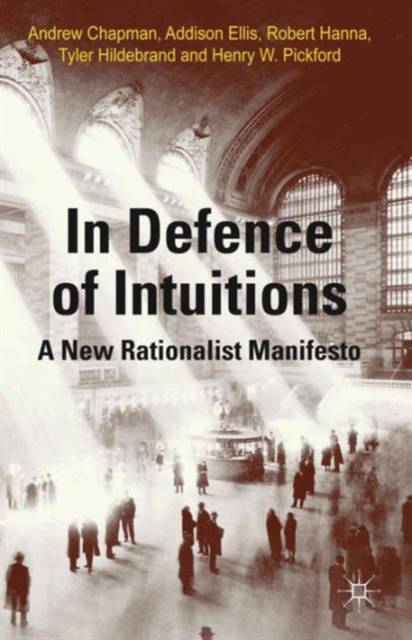
- Retrait gratuit dans votre magasin Club
- 7.000.000 titres dans notre catalogue
- Payer en toute sécurité
- Toujours un magasin près de chez vous
- Retrait gratuit dans votre magasin Club
- 7.000.000 titres dans notre catalogue
- Payer en toute sécurité
- Toujours un magasin près de chez vous
In Defense of Intuitions
A New Rationalist Manifesto
A Chapman, A Ellis, R Hanna, T Hildebrand, H Pickford
Livre relié | Anglais
125,95 €
+ 251 points
Format
Description
Most contemporary philosophers (71.1%, according to a recent survey) believe that a priori knowledge is really possible. Indeed, since the late 1980s there has been a renewed and steadily growing interest in rationalism and the a priori; and gradually what George Bealer has dubbed a rationalist renaissance has emerged onto the contemporary philosophical scene. At the same time, however, even despite this renaissance, the core notion of rational intuition has not been either adequately defended or fully developed, especially as regards solving its two core problems: (1) how rational intuitions can sufficiently justify beliefs, and
(2) how to explain the real possibility of rational intuitions. Given that unstable dialectical situation, this book is an attempt to respond critically, directly, and decisively to the most important contemporary skeptical anti-rationalist attacks on intuitions and a priori knowledge in philosophy, and to defend neo-rationalism from a contemporary Kantian standpoint, with a special focus on the theory of rational intuitions and on solving its two core problems.
(2) how to explain the real possibility of rational intuitions. Given that unstable dialectical situation, this book is an attempt to respond critically, directly, and decisively to the most important contemporary skeptical anti-rationalist attacks on intuitions and a priori knowledge in philosophy, and to defend neo-rationalism from a contemporary Kantian standpoint, with a special focus on the theory of rational intuitions and on solving its two core problems.
Spécifications
Parties prenantes
- Auteur(s) :
- Editeur:
Contenu
- Nombre de pages :
- 427
- Langue:
- Anglais
Caractéristiques
- EAN:
- 9781137347930
- Date de parution :
- 22-10-13
- Format:
- Livre relié
- Format numérique:
- Genaaid
- Dimensions :
- 142 mm x 216 mm
- Poids :
- 703 g







